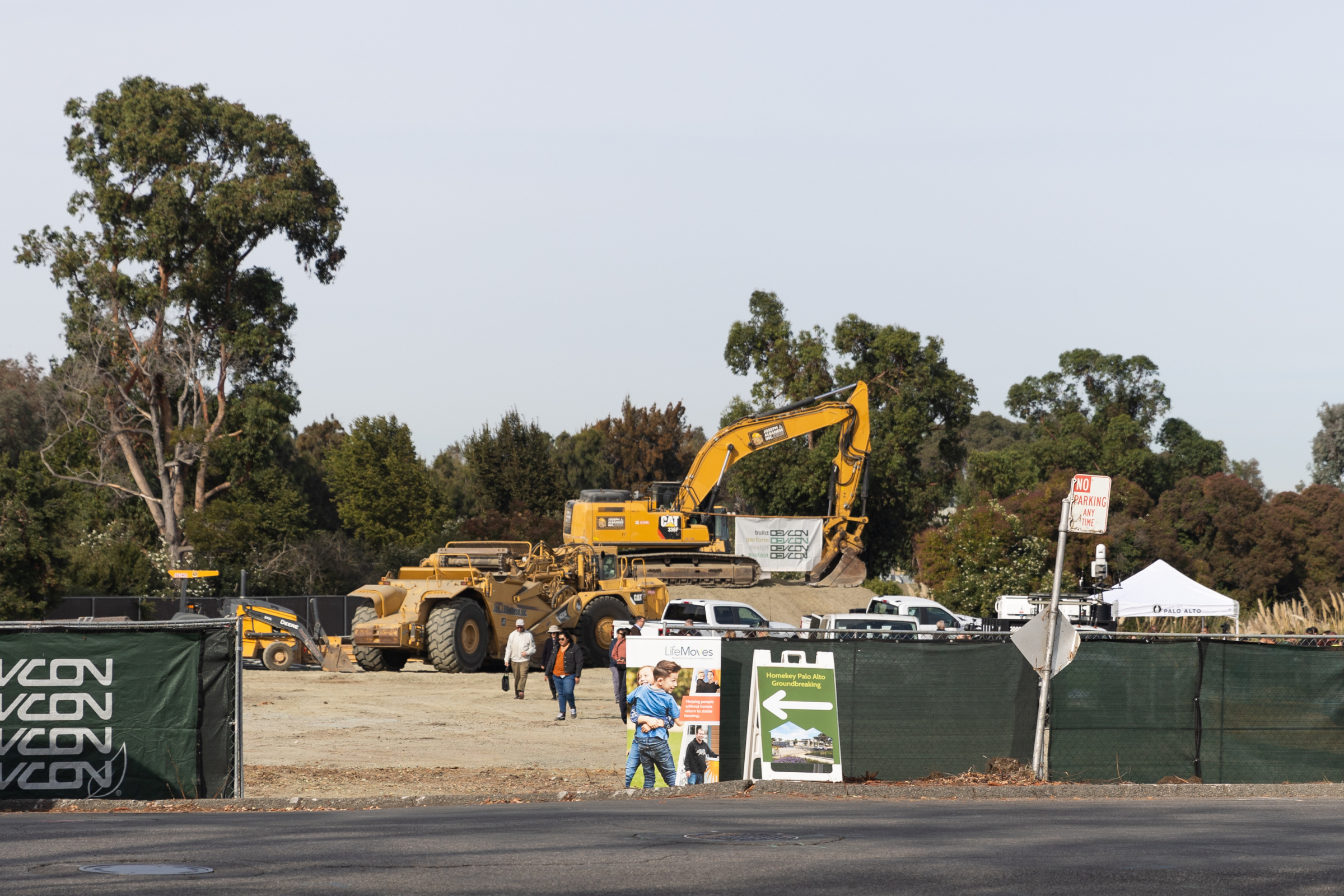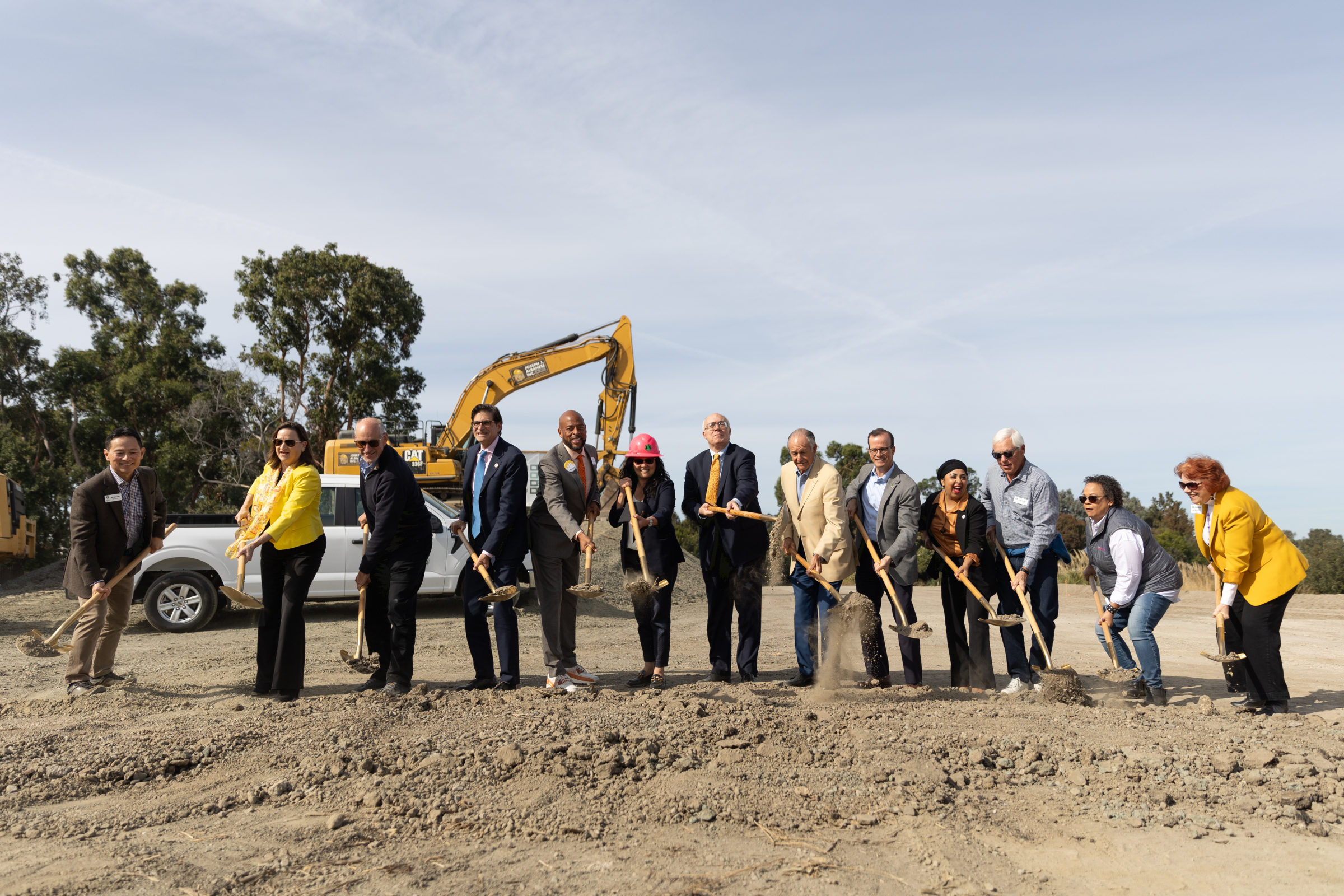The new housing development that will soon go up on a vacant San Antonio Road site in the Baylands is unlike any other residential project in Palo Alto’s pipeline.
Located next to the Mountain View border, the apartment complex at 1237 San Antonio Road will include 88 dwellings on a currently vacant site next to land that was once occupied by a water-treatment plant. Once completed in early 2025, it will serve individuals who unhoused and who, in many cases, require supportive services.
The $37-million project will be operated by LifeMoves, a nonprofit that runs a similar facility in Mountain View, close to the Mountain View site. The lion’s share of the cost — $21.7 million — is coming from the state Department of Housing and Community Development’s HomeKey program, which focuses on transitional housing. The city of Palo Alto and Santa Clara County are chipping in $4.5 million and $4 million each toward construction, while LifeMoves and private donors making up the balance. John Sobrato is donating $5 million.
The Palo Alto City Council has been debating the transitional-housing project for the past two years — a period during which the project’s building heights, dwelling count and price tag had all gradually gone up. On Tuesday, Oct. 31, city officials and their partners came together to commemorate the project’s long-awaited transition from a concept to reality. With Caterpillar excavators and pickup trucks in the background, they kicked up dust with ceremonial shovels and cheered the launch of the construction phase.
Mayor Lydia Kou was among the speakers who observed that the problem of homelessness is far larger than any single solution. Palo Alto, she said, has a housing affordability problem that cannot be solved with "unfettered building" in a place where the cost of land is particularly high.
"Project like this are a welcome step and we should celebrate them and thank everyone who helped make this happen, but we all know we are so far away from declaring victory against homelessness because the current approach alone is not enough and we need many approaches, including projects that can be built rapidly and at lower costs," Kou said.
Just about every speaker acknowledged the high degree of collaboration that it took just to get to the starting line of construction for a project, which will have the capacity to serve about 100 people at one time. With average expected stays of about six months, it will provide shelter to about 200 people annually, according to City Manager Ed Shikada.
State Sen. Josh Becker and state Assembly member Marc Berman both talked about their efforts to fund housing and homelessness programs. Berman said he and Becker fought hard to ensure availability of funding to support HomeKey projects in sites throughout the state and to advocate for projects in their district.
"My understanding is this is the first permanent shelter to be built in Palo Alto for decades, which just tell you about the demand and the need," Berman said.
Berman said that when touring other Project HomeKey sites in Mountain View and Redwood City, he was struck by how many previously unhoused residents were palpably excited and grateful to finally have secure apartments. Becker concurred and, alluding to Halloween, likened the ceremony to a gift made by Sobrato, LifeMoves, the city, the county and the state to the future residents.
"It’s a gift to residents who will get a place with a locked door and a better chance in life. And it’s a gift to the region and a gift to all of us," he said.
Not every LifeMoves resident, however, sees it that way. A March investigation by the Mountain View Voice, a sister publication of The Almanac, found that the nonprofit has a lower rate of placement than other comparable shelters, with about 26% of LifeMoves residents finding stable homes. Some clients also complained about instances of harassment and sexual harassment at the Leghorn Street facility in Mountain View.
When the Palo Alto council was approving its lease with LifeMoves in June, Merriman suggested that the article didn’t capture "the entire context" of the complexity of the nonprofit’s work. He noted at the time that there had been a 43% reduction in homelessness in Mountain View of the prior two or three years.
When asked Tuesday what lessons the nonprofit can apply from its Mountain View experience to the new project Palo Alto, Merriman said the organization learned the importance of building and preparing staff and managing community expectations when a new site comes online.
It takes time, he said, for a site to ramp up and for people to get settled in before LifeMoves can deliver the outcomes that everyone likes to see.
"The fundamental thing is that we’re a learning organization so we’re always carrying lessons forward," Merriman told this publication. "Each project is an iteration of the last project, so we’re going to carry a lot of the learning from the previous project forward."
In his remarks to the assembled crowd, Merriman said the project takes LifeMoves one step closer to its vision of a community where everyone has a home. Residents, he said, will have access to "individually tailored support services to address their needs, their wants and their goals."
"We help them build a plan, we secure the resources they need so they can permanently exit interim supportive housing," Merriman said. "This will happen on these grounds. What will be built here will be the stepping stone to their forever homes."
Santa Clara County Supervisor Joe Simitian asked the public officials, nonprofit leaders and private donors in the crowd to act with urgency to address homelessness. The Palo Alto project, he noted, is just the second to receive money from the county through a $40 million program that Simitian introduced two years ago with his colleague, Supervisor Otto Lee.
"Truth be told, we’re at a place where we have to admit that we can’t do enough and we can’t do it fast enough and these challenges will seem intractable," Simitian said. "And we do the work and, frankly, it will be an intractable problem unless we act with urgency.
"We have to do more and we have to do it faster."




Comments